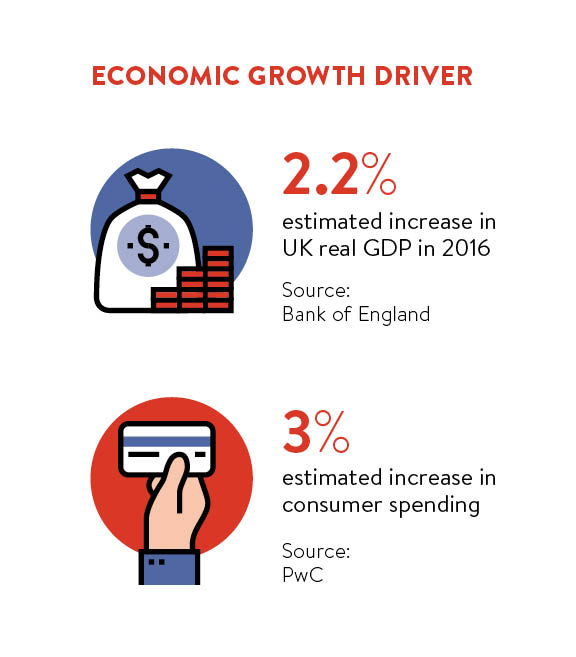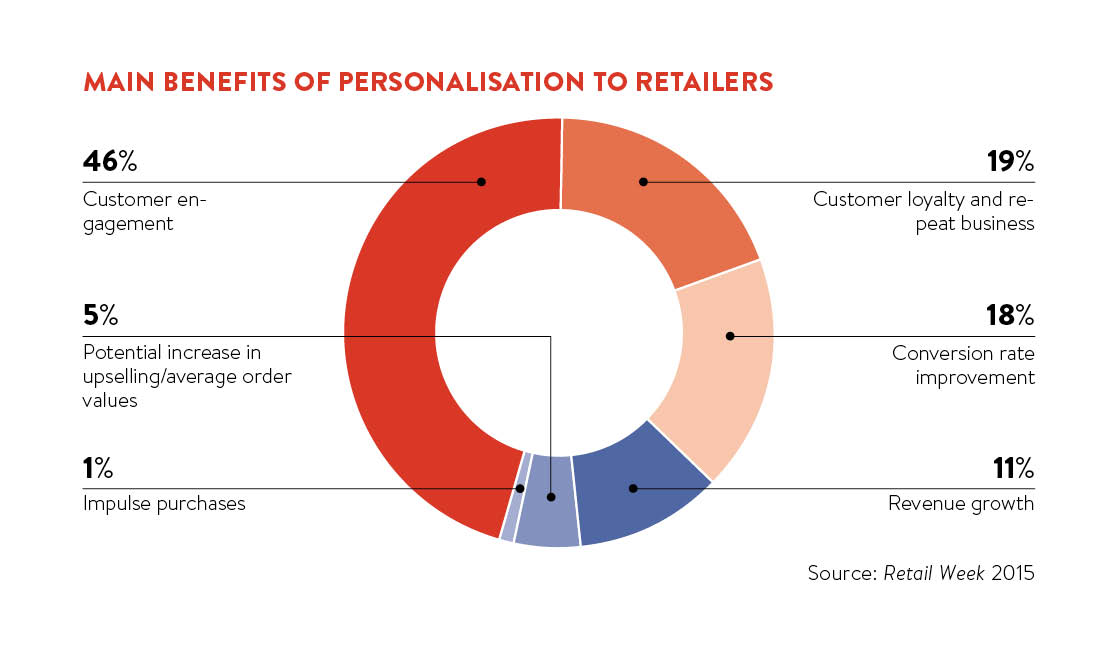Modern retailers thrive on online reviews, social media commentary and customer feedback, using insights gleaned from these sources to change the way they do business. From e-commerce giants to local bookstores, retailers are using the data they get from shoppers to create a feedback loop of personalised recommendations and promotions, and to improve the service, merchandise and prices they offer.
But some believe digital communications are an impersonal and remote way for retailers to create meaningful relationships with customers, preferring a human interaction. Waterstones managing director James Daunt, who has moved the bankrupt bookshop chain into profit since taking over five years ago, says: “Unlike our domestic and international peers, our shops are resolutely old fashioned.
“We are investing enormously in training booksellers, getting them to talk to customers, valuing and championing that kind of personal interaction, and we have invested to try and develop distinct personalities in our very diverse shops.”
He accepts that retailers can create a powerful dialogue with customers using data gleaned from loyalty cards and social media, but believes the human touch is essential in selling complex products such as books.
Social media listening
So how far can the explosion of online reviews, social media chatter and other data collected via digital communications help retailers improve the service they offer? Over recent years, Facebook and Twitter have played a part in reshaping retail, acting as sounding boards for customer complaints and a platform for people to exchange shopping experiences.
Twitter has been likened to the world’s largest unprompted focus group, which can be scoured for insights and feedback on shoppers’ thoughts about stores. Iain Matthews, chief strategy officer at social media agency Deep Focus London, says some retailers use social media analysis to assess how people feel about local stores, capturing comments from Twitter on waiting times, customer service levels, pricing and the quality of goods.

But he believes many retailers are lagging behind other sectors, such as air travel, when it comes to using customer feedback from social media and the open web to steer their businesses. “A lot of retailers are a bit behind the curve; there is value in being really strong in this space. But it is somewhat under-exploited by retailers at the moment,” says Mr Matthews.
Facebook and Twitter have played a part in reshaping retail, acting as sounding boards for customer complaints and a platform for people to exchange shopping experiences
Social media-listening has an advantage over review sites such as TripAdvisor and Amazon as a way of gleaning customer feedback. The comments made on social media are unprompted, so are likely to be the random thoughts of ordinary consumers. By contrast, review sites are vulnerable to fake reviews from businesses promoting their own profiles or rivals trying to denigrate competitors.
The Competition and Markets Authority estimates that some £23 billion-worth of sales in the UK are made each year after consumers have read online reviews. It estimates that up to one fifth of those reviews could be fake.
The feedback revolution
Even so, online reviews are having a massive impact on retailers, who are using them to learn about their consumers’ preferences and to change their offers accordingly. The so-called closed feedback systems, such as Feefo and Reevoo, are contracted by online and bricks-and-mortar retailers to send review forms to people after they have made purchases. This diminishes the chances of fake reviews or of vendors playing the system.
Matt Eames, co-founder and chief commercial officer of Feefo, says retailers have no choice these days than to listen to customer reviews. “No retailer can avoid reviews about their business; they are happening whether they like them or not. People post reviews on Facebook and Twitter, and savvy retailers embrace them. It is about owning the conversation rather than allowing it to take place outside your site,” he says.

The feedback revolution is set to intensify over the coming years as retailers rise to the chatbot challenge, turning computerised virtual assistants into digital shop assistants powered by artificial intelligence. Customers will interrogate these chatbots to get the best shopping experience, and the AI-driven robots will learn about the needs, desires and wants of shoppers individually and as a group. This will allow retailers to become even more responsive to the demands of shoppers.
The rise of personal messaging services, such as WhatsApp, is also likely to transform social-listening. As people increasingly communicate via these apps, it will be more difficult for retailers to listen in to comments as they do on social media, since the messaging apps are private. But messaging services are now hosting retailer and brand chatbots, as well as virtual assistants, and will deliver personalised shopping services, allowing retailers to learn automatically from the behaviour of customers.
Elizabeth Cherian, director of The Innovation Group at advertising agency J. Walter Thompson London, believes customers will increasingly delegate buying decisions to machines, which will use the knowledge they build up about the customer to make purchases on their behalf.
However, she adds: “People are happy to delegate control to devices, but there has to be sensitivity to the personal data they are divulging.” Ms Cherian believes the issue of privacy is “scaring the hell out of people”. She says: “If you don’t get the data privacy aspect right, people will walk away.”
The rise of omnichannel
Retailers are trying to achieve omnichannel retail, enabling customers to make purchases through a variety of platforms and channels, whether in-store, on their mobiles or via a desktop computer. But Ms Cherian believes this will go much further in the future. “People will be able to buy stuff everywhere. With the internet of things, there will be all these smart products in our personal space; we will be surrounded by things and everything is a potential sale,” she says.
For some, retailers need to start paying more attention to the needs of customers, focusing more heavily on feedback and finding out about the needs of shoppers, rather than simply trying to sell more stuff.
Simon Hathaway, global head of retail experience at consultancy Cheil Retail, concludes: “One of the challenges retailers have faced over the last ten to fifteen years is the culture of ‘buy, buy, buy’ without understanding their customers and how they feel. Getting back to a customer-centric approach would be a good thing.”
CASE STUDY: WATERSTONES GETTING PERSONAL
 Since James Daunt took over management of Waterstones bookshops five years ago, he has adopted a locally focused and old-fashioned approach to customer interaction. The chain had been driven to bankruptcy by competition from Amazon’s low-priced online book sales, but Mr Daunt is fighting back by concentrating on developing the dialogue between customers and staff in stores.
Since James Daunt took over management of Waterstones bookshops five years ago, he has adopted a locally focused and old-fashioned approach to customer interaction. The chain had been driven to bankruptcy by competition from Amazon’s low-priced online book sales, but Mr Daunt is fighting back by concentrating on developing the dialogue between customers and staff in stores.
“I believe we live or die on how good our booksellers are in that personal connection,” he says. “There is no algorithm that I have come across – including Amazon and the rest – which is remotely comparable to the intelligent human brain.”
But he also believes that data about customers can be used to open a dialogue with them both outside shops and within them. The chain’s loyalty scheme offers data on its two million members and gives a rounded picture of the likes, demographics, ambitions, family life and interests of customers.
Waterstones, which has some 290 stores across the UK, also offers a smartphone app, which can be used to search for and reserve books. The app is in the process of being updated and Mr Daunt says it will eventually include a method of making product recommendations which is very different from what happens on Amazon. The e-commerce giant bases its recommendations on looking at what other customers have bought: “Other customers who bought this item also bought these.”
Mr Daunt adds: “We are trying to say, actually a very good bookselling brain will work in a slightly different way – if you bought this, we think you should be interested in this – it is subtly different.”
Social media listening

The feedback revolution

